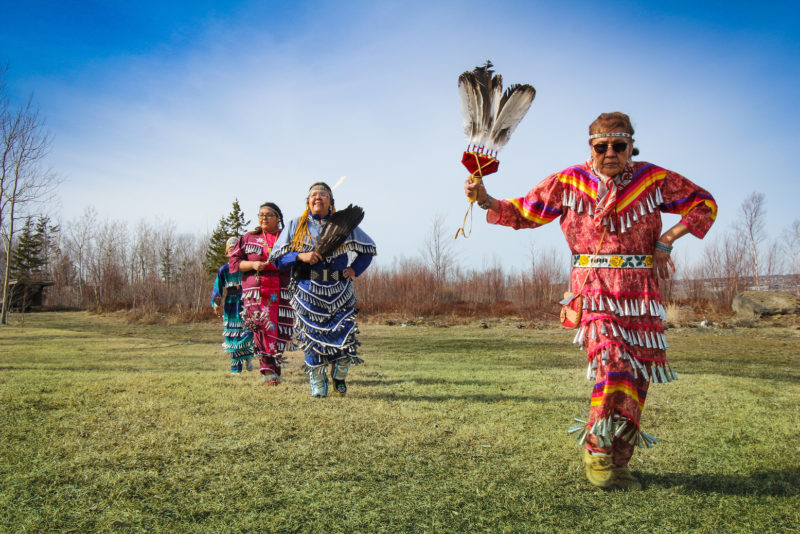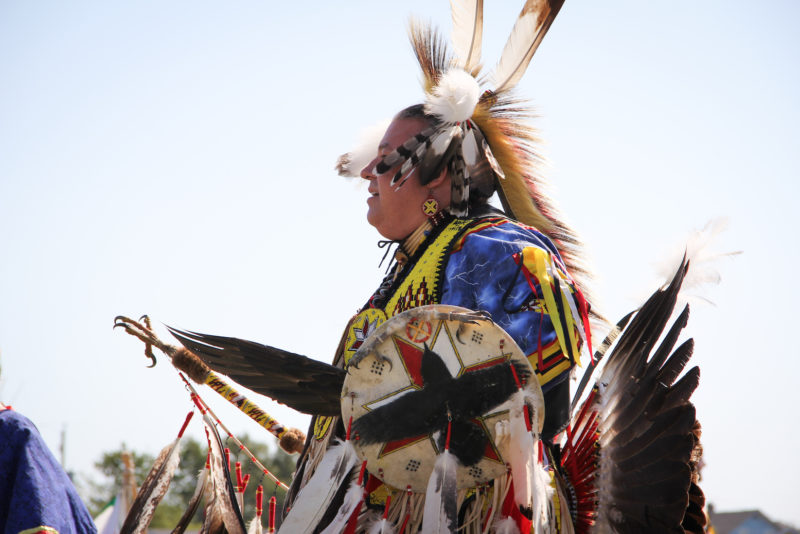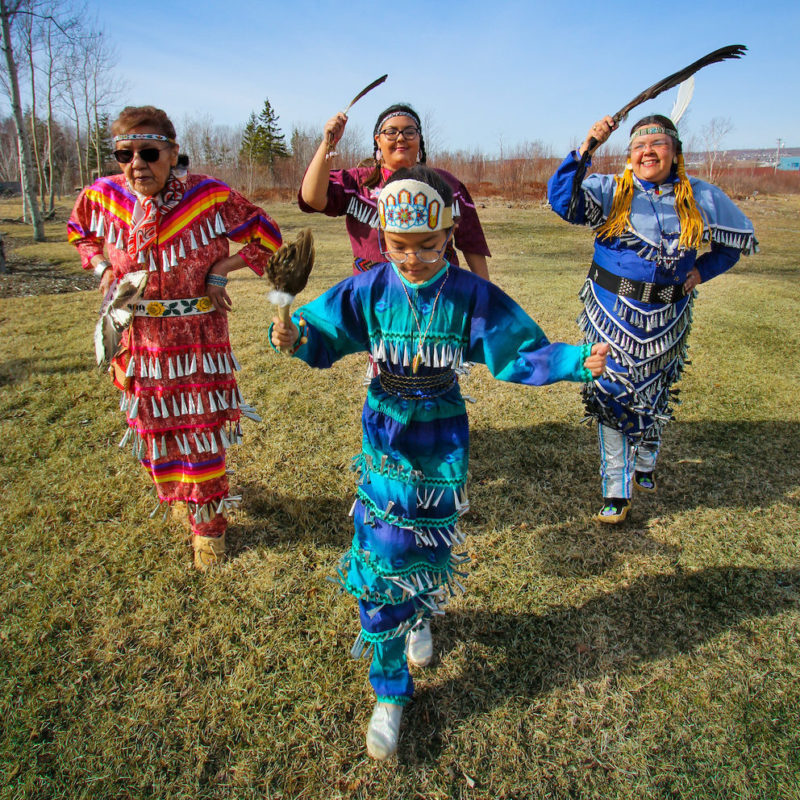Author: Mina Atia – Communications Coordinator, Halifax Chamber of Commerce
Source: https://halifaxchamber.com/business-voice/collaboration-and-community/
June is National Indigenous History Month and we get to celebrate the cultures and contributions of First Nations, Inuit and Métis peoples in Canada. It’s an opportunity to honour the history, heritage and diversity of Indigenous peoples in Canada.
It’s also a time for learning, appreciating and acknowledging their contributions. Across Canada, Indigenous communities showcase their strengths and impact on the national economy.
The Clearwater Seafoods acquisition was a transformational deal for the Indigenous communities and economies. The Mi’kmaq are rooted in traditional values of fishing that have been sustaining their communities for thousands of years. The milestone acquisition not only generates economic benefits for Indigenous people but also returns them to their traditions in a modern way.
With this purchase, they gain access to the offshore fishery for the benefit of the next seven Indigenous generations, as is customary in Mi’kmaq culture. This long-term win was an ode of intergenerational prosperity dedicated to the community.
“Our fifty percent ownership in Clearwater Seafoods is an example of the opportunities that exist, and these opportunities provide long-term sustainability and financial diversity for our communities,” says Terrance Paul, Chief and CEO of Membertou, Mi’kmaq community located on Unama’ki – Cape Breton Island.
The Mi’kmaq Coalition (50 per cent owners of Clearwater) is working to ensure Indigenous participation in the fishery industry. “Now that we are owners, we are working alongside the dynamic team at Clearwater Seafoods to create programming and practices that will help more Mi’kmaq fishers and employees secure meaningful employment with the company,” says Chief Paul.
Having been called the single-largest investment made by an Indigenous group in Canada, the deal is valued at $1-billion. “Clearwater has been very committed to this endeavour, and I am pleased to say that an Indigenous Employment Advisor has been hired and will be working daily to ensure participation within the fishery,” says Chief Paul. “And we’re looking forward to a day hopefully soon, where deals like this are common place within our industry, and beyond.”

Similar activities are happening in the Paqtnkek Mi’kmaw Nation community, located in Antigonish County, NS where the Bayside Corporation is developing partnerships for growth within their retail services and long-haul trucking. Working on major partnerships and joint ventures, Bayside is partaking in the Pieridae-Goldboro LNG project.
“For us, this project is right in the corridor of our community,” says Rose Paul, CEO of Bayside Development Corporation. It’s the Paqtnkek Mi’kmaw Nation’s business arm managing the development of reserve lands on the south side of the Trans-Canada Highway 104 in Antigonish.
“There’s a lot of opportunity for us to be the active players at the table to expand any further business development, partnerships and growth for our local economy.”
Through the Goldboro LNG facility, Pieridae Energy will build and operate a terminal for the liquefaction, storage and loading of liquefied natural gas (LNG) to world markets. This project will bring cleaner natural gas and jobs across the region.
Cleaner natural gas will play a large role in decreasing greenhouse gas emissions. Equally as important, the project supports Indigenous Peoples reconciliation through partnerships with the Nova Scotia Mi’kmaq. The goal is to build a $720 million workforce lodge to house 5,000 workers who will build the LNG Facility.
“This involves not just jobs, but also stakeholders working with some very wonderful partners to collaborate and work together on developing not only capacity and jobs but also wealth,” says Paul.
This development is just one of many major projects Bayside Development Corporation is working on to support its members. The project contributes to the implementation and execution of Bayside’s five-year plan focused on furthering prosperous partnerships––where executive meetings held with big players have Indigenous representation at the table.
Not only that, but it also offers big-initiative opportunities such as trade and export, expanding the land base further, and propelling business development for generations to come.
“We are strategically expanding our land base on a highway and positioning ourselves to be more diverse and open to further opportunities,” says Paul. “It’s not just to build businesses but to create sustainable businesses and have a very strong workforce, because we need our people to run our business.”
“We will be working with Chief Paul’s community. The Clearwater development is a pretty huge opportunity, and we are proud to be part of that major initiative.”
The Paqtnkek Mi’kmaw Nation community works with national partners such as the First Nation Finance Authority and the First Nation Financial Management Board to secure the success of these types of large projects.
“We’re now in the process of developing our own land codes, removing ourselves from reporting to sections of the Indian Act through the First Nations Land Management,” says Paul. “It’s something I’ve been really passionate about.”
The First Nations Land Management enables First Nations to opt-out of 40 sections of the Indian Act relating to land management. Afterwards, they can develop their own laws about land use, the environment and natural resources. With these new land management authorities, First Nations can take advantage of many cultural and economic development opportunities.
“We have to empower our people, promote more wealth generation and focus on poverty,” says Paul. “I’m a huge advocate for building our community around this kind of strength and resiliency.”
The First Nations Tax Commission has also provided the community with tools to develop strong business and strong partners as well as become a sovereign nation. These tools support them in working around the Indian Act.
With these tools, First Nations are regaining their economy and creating opportunities for their communities, in their own membership, but also overall in Atlantic Canada. Their years of hard work and dedication are paying off as they create an economic base that will last for generations.

“We’re seeing the positive outcome of those years of work starting to realize itself, and that’s because of multiple factors such as reconciliation and the leadership of First Nations playing a big role,” says Shayne McDonald, Former Director of Justice, Miawpukek First Nation, and new Director of Netukulimk Fisheries Ltd.
“I also think just learning over time that the road to economic growth and success takes dedication and time.”
A First Nation Reserve located at the mouth of the Conne River on the south coast of the island portion of Newfoundland and Labrador, Miawpukek has a growing demographic population and is politically, administratively and economically stable. The community offers a great partnership for mainstream industries across different sectors––fishing, oil and gas and/or mining––to move forward on various initiatives for the mutual benefit of all parties involved.
“We have good capacity and access to training and to equip our members for employment in the local, regional and national labour markets,” says McDonald. “With that comes strength as we’ve seen multiple partnerships and relationships established over the past several years.”
Miawpukek First Nation was also a part of the Clearwater deal and is thrilled to see it come through. It is one of two main projects the community has been working on. It also recently partnered with Horizon Maritime, an offshore supply and service company with offices based in Halifax and St John’s.
“With respect to Horizon’s desire to have diversity and inclusion in their workforce, we have many members employed as seafarers on their offshore supply vessels,” says McDonald. “The relationship and mutual respect developing resulted in this partnership.”
A new corporate entity was established as result, known as the Miawpukek Horizon Maritime Services Ltd. which is 51 per cent owned by Miawpukek. The company’s goal is to build a service offering in the marine-service supply sector, not only including the offshore but also near shore and coastal services in a broad range of areas. The initiative is seeing early success in receiving contracts with the Government of Canada.
“We’re quite delighted with this initiative and that relationship with the owners of Horizon Maritime,” says McDonald. “It’s making inroads in different sectors, creating employment opportunities for our membership and building a pathway to return on investment that will see revenue flow back to the community.”
“It all works towards getting to a stage where we’re self-sufficient and can rely on our own source of revenue for our community governance and expenses, as opposed to relying in part on government programs and services.”
First Nations communities across Canada are undergoing significant change and significant development with respect to businesses and partnership. And they are offering opportunities for the mutual benefit of both the Indigenous community and partners from the business community.
“My advice is, if you’re looking for a partner, you need to do your due diligence and look for a good fit and characteristics that align with your corporate values and your corporate social responsibility,” says McDonald. “I got no doubt that there’s a First Nation or an Indigenous entity out there that will align quite well with whatever a company may be looking for in a partner.”
“And I would strongly encourage making contacts with the Indigenous leaders. Once that’s done, you will see improvements and building upon the success that we’re already seeing not only in the Atlantic region but across Canada.”
Growth and prosperity are on the horizon for many First Nation communities. They are moving forward across Canada and Atlantic Canada while poised to make a significant difference. Their creating of economic and business opportunities will continue to support their communities for many generations to come.
“As our Chief Misel Joe said many, many times in the context of Miawpukek First Nation being situated in Newfoundland,” says McDonald. “When we do good and when we have success, Newfoundland does good and has success and the benefits transcend our reserved community to benefit our province and Canada as a whole.”■
